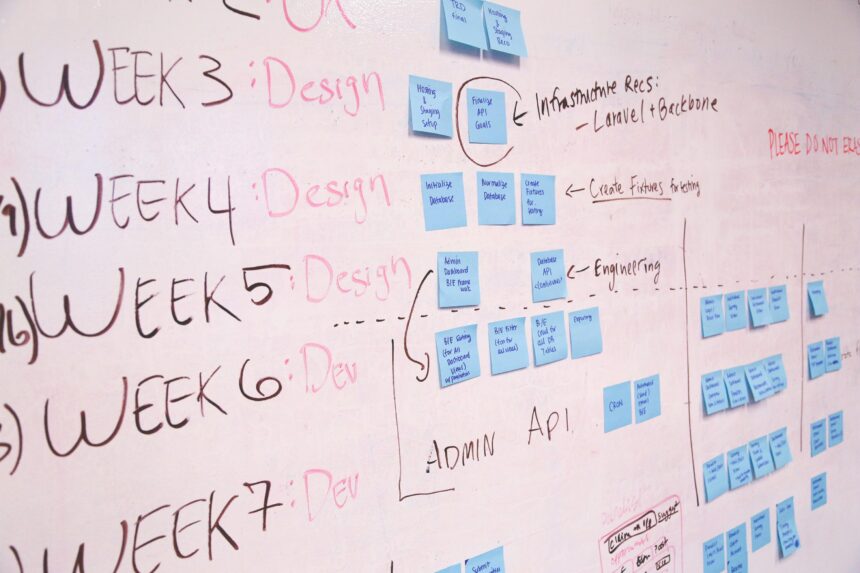Effective task management is more than organizing to-do lists; it’s a structured approach to improving collaboration, accountability, and overall productivity in a team. When a team employs a solid task management strategy, they set themselves up for clearer communication, defined roles, and a streamlined process to accomplish their goals. This post explores why task management is critical for boosting team efficiency and provides insights into how it can create a culture of productivity and alignment.
Building a Foundation for Clear Priorities
Prioritizing tasks lays the groundwork for team efficiency, enabling members to focus on what truly matters. Task management tools assist teams in distinguishing between high-priority and secondary tasks, ensuring alignment with the organization’s goals. You can check Time Clock Wizard’s user guide or explore similar resources to see how these tools allow team members to list and rank tasks, enhancing clarity across the board. By allocating time and resources where they’re most needed, teams optimize their efforts and drive impactful results.
Improving Accountability and Ownership
Accountability is essential in team settings, where each member’s output can impact the entire project. Task management creates a transparent record of who is responsible for each task, making it easy for team members to understand their roles and deadlines. When individuals know that their work is visible to others, they are more likely to commit to their responsibilities. This visibility fosters accountability, reducing the likelihood of missed deadlines and unfinished tasks. In turn, everyone is encouraged to complete their tasks on time, contributing to a reliable team culture.
Enhancing Collaboration and Communication
Task management fosters better communication and collaboration by clarifying each person’s contributions. Task management systems often come with features that allow team members to comment, attach files, and share feedback directly within tasks, creating a centralized location for project-related information. This setup reduces the need for lengthy email chains and helps keep discussions focused on relevant issues. With team members able to monitor progress and address challenges directly in the task interface, collaboration becomes more seamless and productive.
Boosting Efficiency with Time Management
One of the biggest challenges for any team is time management. Task management systems help improve time allocation by giving teams an overview of all current tasks, deadlines, and the workload of each member. This visibility helps team members allocate time efficiently, balance workloads, and avoid burnout. Knowing what needs to be done and how long it will take creates an environment where deadlines are met, and tasks don’t pile up unnecessarily. Task management enables a consistent pace, making time management an integral part of the team’s routine.
Facilitating Flexibility and Adaptability
No project runs perfectly from start to finish without adjustments. Task management plays an instrumental role in accommodating changes by allowing teams to update and reassign tasks with minimal disruption. For instance, if a task’s deadline shifts, team members can quickly adjust their schedules and reallocate resources to ensure continued progress. This adaptability keeps everyone informed and ready to pivot without major setbacks. Task management helps maintain momentum by creating flexibility in the workflow, allowing teams to respond efficiently to unforeseen challenges.
Tracking and Analyzing Performance
Effective task management not only streamlines daily operations but also provides valuable data for performance analysis. Many task management tools track metrics, such as time spent on each task, number of tasks completed, and adherence to deadlines. These insights help team leaders evaluate productivity patterns, recognize top performers, and identify areas for improvement. Performance tracking also enables team members to reflect on their contributions, fostering continuous improvement and driving efficiency in future projects. Over time, these insights help teams build stronger workflows and refine their task management strategies.
Encouraging Continuous Improvement
When teams implement task management practices, they establish a structured framework that promotes continuous improvement. By regularly reviewing completed tasks and assessing team efficiency, teams can identify opportunities to streamline processes and optimize workflows. This practice of reflection and adaptation ensures that task management evolves with the team’s needs, making it a valuable tool for sustaining long-term productivity. When team members are encouraged to share feedback and adjust processes, they become active contributors to a culture that values efficiency and progress.
Task management is a critical component in creating efficient and productive teams. By prioritizing tasks, fostering accountability, enhancing communication, improving time management, and supporting adaptability, task management lays the foundation for a high-performing team culture. With the added benefits of performance tracking and continuous improvement, task management proves to be more than just a tool—it’s an essential approach for any team aiming to optimize its workflow and achieve its goals.


